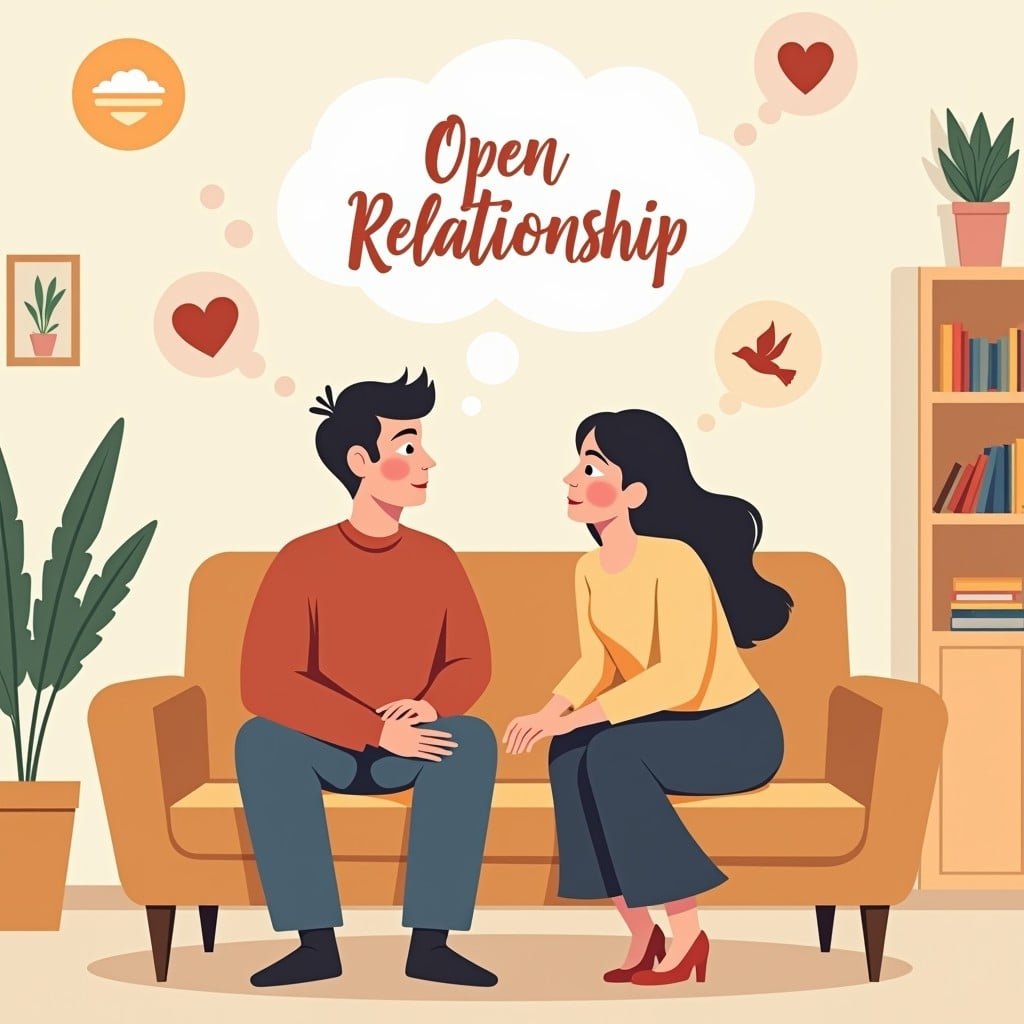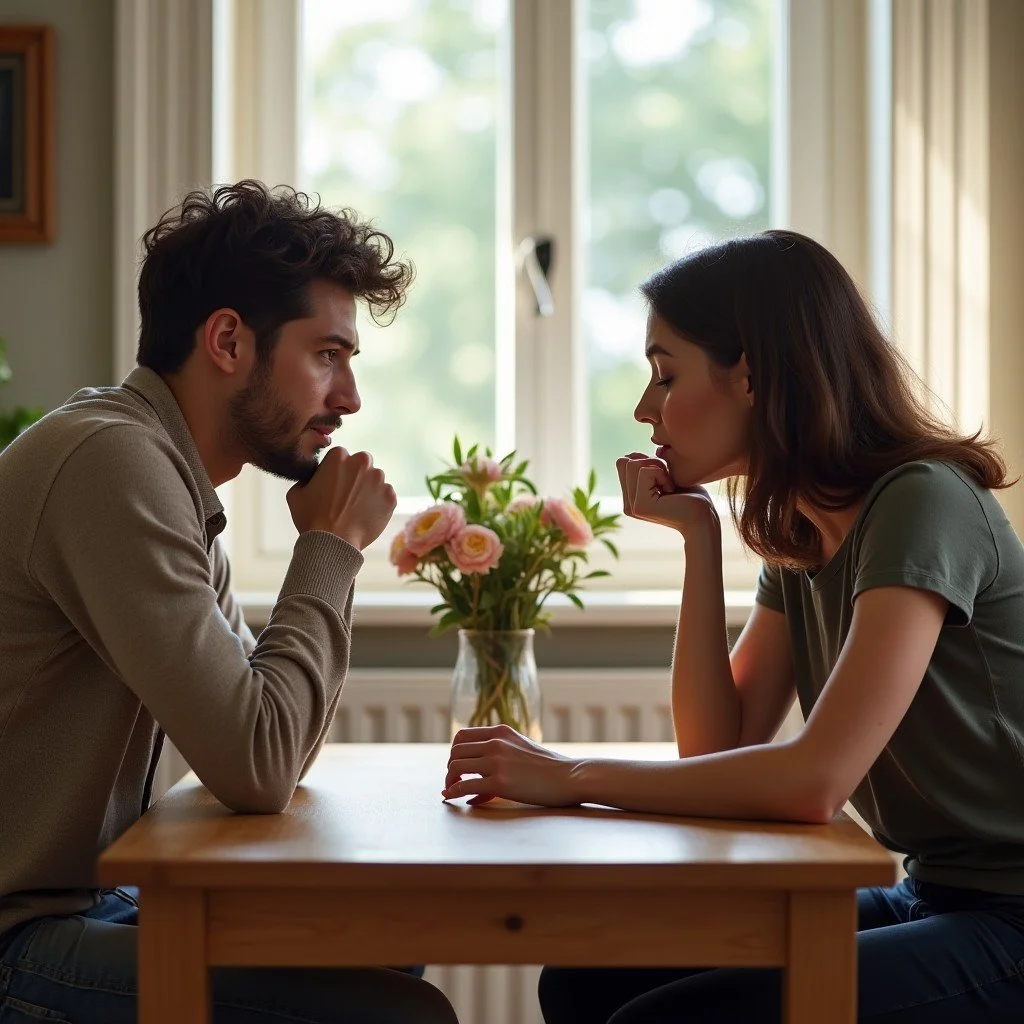Are Open Relationships Right for You? Questions to Ask Yourself
Love is a funny thing, isn’t it? It’s beautiful, complex, sometimes confusing, and ever-evolving. And in recent years, the idea of an open relationship has been taking up more space in conversations about love and commitment. For some, it’s a way to explore greater freedom while maintaining their primary bond. For others, the concept brings more questions than answers. So, how do you know if an open relationship is right for you? Let’s explore the possibilities together.
What’s an Open Relationship?
At its core, an open relationship is one where both partners agree to pursue connections—emotional, physical, or both—outside their primary partnership. This could range from casual dating to forming deeper, more meaningful bonds with others, a dynamic often associated with polyamory. Polyamorous relationships, in particular, involve cultivating multiple consensual and ethical partnerships where everyone is aware and respectful of each other’s roles.
But it’s not a free-for-all. It’s all about mutual consent, clear communication, and trust. Successful open or polyamorous relationships rely on setting boundaries that work for everyone involved, creating a foundation where each partner feels valued and secure.
Think of it as a relationship where the boundaries are drawn with a flexible pen, but both parties still hold the pen together. Sounds simple, right? Well, not exactly. Open and polyamorous relationships require just as much—if not more—effort and emotional maturity as monogamous ones. They demand a heightened level of self-awareness, honest communication, and a willingness to navigate complex emotions like jealousy and insecurity.
For couples considering these dynamics, it’s essential to approach the conversation with an open mind and a clear understanding of what both partners hope to gain. This journey isn’t for everyone, but for some, it can be a transformative experience that strengthens their bond while honoring their individuality.
Why People Consider Open Relationships
So, what’s the appeal? People choose open relationships for a variety of reasons:
Exploration: Some want to experience romantic or sexual connections with others while still cherishing their primary partner.
Personal Growth: For others, it’s about self-discovery—learning how to navigate complex feelings like jealousy and vulnerability.
Fulfilling Different Needs: Let’s face it, no one person can be everything to someone else. Open relationships can be a way to meet diverse needs without placing impossible expectations on one partner.
Kayla Crane, a Licensed Marriage and Family Therapist (LMFT), shares: "For some couples, polyamory is about acknowledging that no one person can fulfill all of their needs. By being open to other connections, they feel less pressure to be everything for each other, which can actually strengthen their bond."
Self-Reflection: Is This Really For You?
What Are Your Reasons?
Why are you considering an open relationship? Is it because you’re curious, or maybe you feel something is missing in your current dynamic? Be honest with yourself here. If it’s a way to avoid addressing deeper relationship issues, an open relationship might complicate things instead of fixing them.
It’s also important to consider if this is your idea or your partner’s. If you’re feeling pressured into agreeing, take time to reflect on how this might impact your well-being. Feeling coerced can lead to resentment, which can harm the relationship rather than strengthen it.
How Do You Handle Jealousy?
Jealousy is a natural emotion, and it’s bound to pop up when you or your partner starts seeing someone else. Can you handle those feelings without letting them spiral out of control? More importantly, are you willing to communicate openly about them?
““I’ve had many clients come into couples counseling because they thought they wanted an open relationship but later regretted the decision. One client shared how seeing his wife with another man created an image he couldn’t get out of his head, causing significant emotional strain. It took considerable effort in therapy to rebuild his sense of security and re-establish trust. This serves as a reminder to think carefully and honestly before making such a choice.””
What Are Your Communication Skills Like?
Speaking of communication, this is the foundation of any successful open relationship. Are you comfortable expressing your needs, setting boundaries, and addressing conflicts? If you’re someone who tends to bottle things up, this might be an area to work on before taking the leap.
Healthy communication also means being able to listen—really listen—to your partner’s needs and concerns. It’s not just about expressing yourself; it’s about creating a space where both of you feel heard and valued. Effective communication is a cornerstone of healthy relationships. Learn more about communication strategies in relationships.
What Are Your Values Around Commitment?
Does the idea of commitment feel tied to exclusivity for you? Or are you open to redefining what it means to stay loyal to a partner? Understanding your values can help clarify whether an open relationship aligns with them.
Take a moment to consider how your upbringing, cultural background, or past relationships might influence your views on commitment. Sometimes, unpacking these influences can provide clarity about what feels right for you.
Are You Ready for the Challenges?
Open relationships aren’t all sunshine and rainbows. They can bring logistical hurdles (like scheduling) and emotional challenges (like managing feelings of insecurity). Are you ready to face those challenges head-on?
One way to prepare is by educating yourself. Read books, attend workshops, or speak with a therapist who specializes in non-monogamy. The more informed you are, the better equipped you’ll be to navigate the complexities.
Questions to Ask Your Partner
It’s not just about you—an open relationship involves your partner too. Here are some things to discuss:
Do We Share the Same Goals?
Are both of you interested in an open relationship for similar reasons? If one partner is reluctant or feels pressured, it’s a recipe for resentment. Take the time to openly discuss your individual motivations. Are you seeking adventure, addressing unmet needs, or working on personal growth? Ensuring you both share aligned goals can prevent misunderstandings later on. Couples often find it helpful to align their goals and expectations with the guidance of a therapist. If you’re considering an open relationship, couples counseling can provide a safe space to explore your motivations and ensure you’re on the same page.
What Boundaries Do We Need?
Boundaries are essential. Will you share details about your other relationships, or keep them private? Are there specific activities or people that are off-limits? Talk it out. Some couples find it helpful to write down their boundaries as a reference point, especially in the early stages. Revisiting and adjusting these boundaries as needed can keep both partners feeling safe and respected.
How Will We Handle Emotional Challenges?
Jealousy, insecurity, and miscommunication are inevitable at some point. What’s your plan for addressing these issues together? Consider scheduling regular check-ins to discuss how you’re feeling about the arrangement. It’s a good way to catch potential issues early and ensure you’re both on the same page emotionally. Setting boundaries is a key step in redefining your relationship dynamic. For ideas and guidance, explore our blog on premarital counseling topics for building strong relationships."
How Do We Protect Our Physical and Emotional Safety?
Discuss safe sex practices and how to prioritize each other’s emotional well-being. Trust and respect are non-negotiables here. Think about creating a shared plan for how you’ll address any potential risks, like unwanted attention from new partners or feelings of neglect within the primary relationship.
How Will We Prioritize Our Relationship?
Just because you’re opening up your relationship doesn’t mean your primary connection should take a backseat. Make a plan to nurture your bond through regular check-ins, date nights, or therapy if needed. You might also agree on a set amount of time each week that’s exclusively dedicated to your primary relationship. This ensures that while you’re exploring connections with others, your foundational bond remains strong. Creating consistent rituals like date nights can play a crucial role in maintaining intimacy and prioritizing your primary relationship. If you’re looking for inspiration, check out our guide on the importance of date nights in rekindling romance.
Challenges to Keep in Mind
Jealousy and Insecurity
Even the most confident people can feel a pang of jealousy now and then. It’s normal! The key is to acknowledge it, explore where it’s coming from, and talk it through with your partner. Instead of avoiding these feelings, use them as opportunities for growth. Ask yourself, "What does this feeling teach me about my needs or fears?" Find tips for coping with jealousy in relationships.
Time Management
Balancing multiple relationships can feel like juggling flaming swords—it takes skill, focus, and a lot of patience. Be prepared to manage your time thoughtfully, so no one feels neglected. Consider using a shared calendar to plan dates and important events, ensuring that time with each partner is balanced and intentional. Time management also includes taking care of yourself—don’t forget to schedule solo time to recharge and reflect.
Social Stigma
Not everyone will understand your choice to pursue an open relationship. Friends and family might have questions, or even judgments. Are you ready to handle those conversations? Preparing a simple way to explain your relationship dynamic can help navigate potentially uncomfortable situations. Focus on sharing what works for you rather than defending your choices. Remember, your relationship doesn’t need external validation to thrive.
When an Open Relationship Might Not Be Right for You
It’s okay to realize that an open relationship isn’t the answer. Here are a few signs it might not be the right choice:
Your relationship is already struggling with trust or communication issues.
One partner feels coerced into agreeing.
You’re hoping an open relationship will “fix” existing problems.
In these cases, focusing on strengthening your current relationship—perhaps with the help of a therapist—might be a better first step.
Therapy Can Help
Speaking of therapy, don’t underestimate its value. A skilled therapist can help you and your partner navigate the complexities of open relationships, identify potential pitfalls, and develop strategies for success. Whether you’re curious about exploring non-monogamy or simply want to improve your current relationship, therapy is a safe space to explore your options. If you are located in Colorado, check out our different counseling services.
Wrapping It All Up
Open relationships aren’t for everyone, and that’s okay. What matters most is being honest with yourself and your partner about your needs, values, and boundaries. Whether you decide to open your relationship or stick with monogamy, the process of self-reflection and communication can strengthen your connection in ways you didn’t expect.
If you’re curious, don’t be afraid to start the conversation. Who knows? It might just lead to a deeper understanding of yourself and your partner. And isn’t that what relationships are all about?


